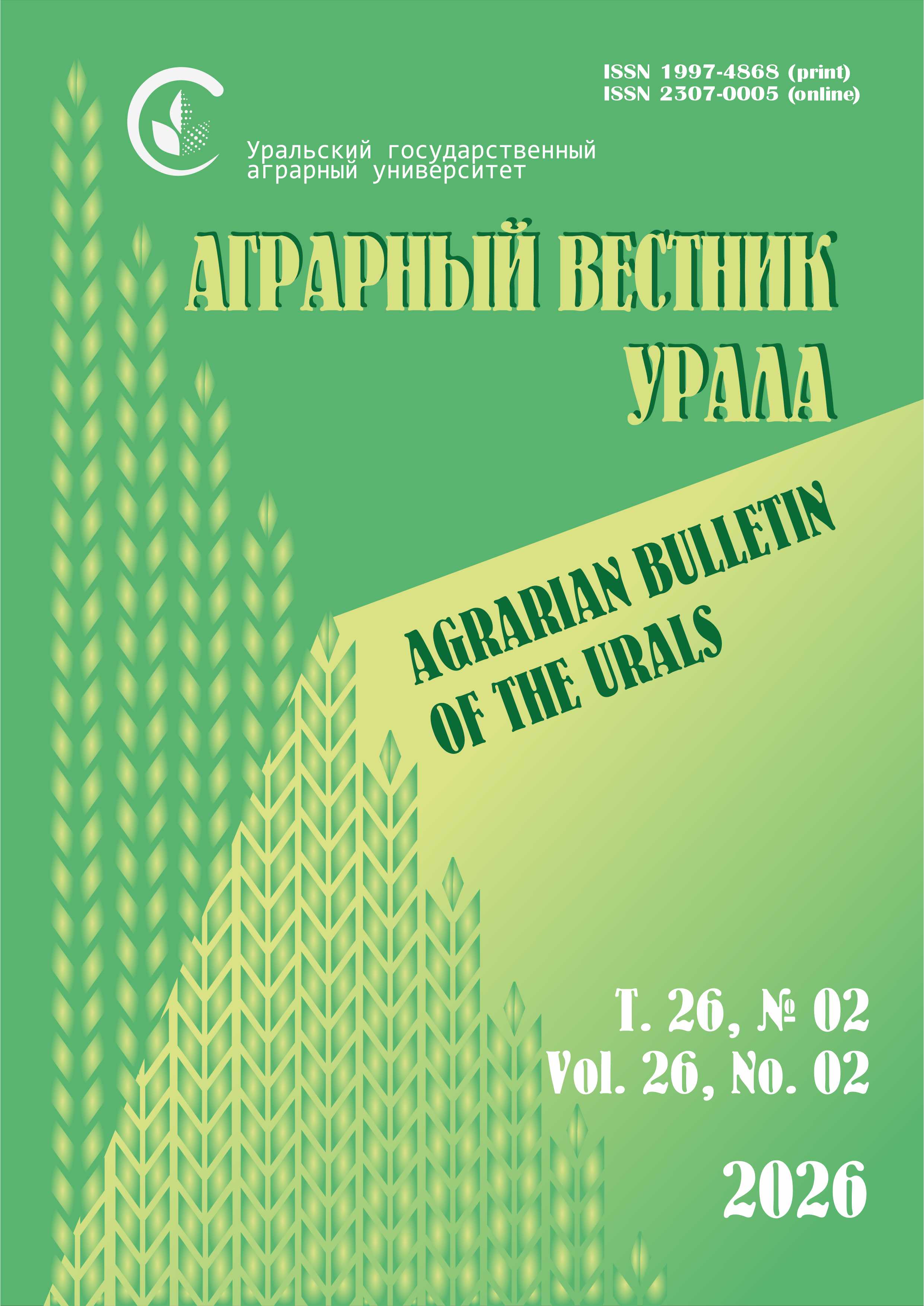Authors:
V. R. YARMUKHAMETOVA, senior lecturer,
L. G. MUKHAMEDYAROVA, candidate of biological sciences, associate professor,
O. A. BYKOVA, doctor of agricultural sciences, professor,
O. G. LORETZ, doctor of biological sciences, professor,
O. P. NEVEROVA, candidate of biological sciences, associate professor,
South Ural State Agrarian University (13 Gagarin str., 457100, Troitsk; e-mail: This email address is being protected from spambots. You need JavaScript enabled to view it.),
Ural State Agrarian University (42 K. Libknekhta str., 620075, Ekaterinburg; e-mail: This email address is being protected from spambots. You need JavaScript enabled to view it.).
Abstract. Adaptation of the organism to inadequate environmental conditions is one of the most important and unsolved problems for both biology and veterinary medicine. The intensive mobilization of the most important systems of the body ensures the maintenance of homeostasis or adaptation to the action of unfavorable environmental factors that lead to disruption of the functions of vital systems, and as a result to various functional disorders and a decrease in resistance. The article presents data on the study of the protein blood spectrum of the calves of the early postnatal period under the conditions of the technogenic agroecosphere against the background of the probiotic preparation «MUZINOL»-extra. This preparation, enriched with chitosan, promotes an increase in the total protein content by 40.78 and 40.71 % (p < 0.001) and the albumin fraction by 54.76 and 55.12 % (p < 0.001) against the background decrease in the globulin fraction. The use of the probiotic «MUZINOL»-extra had a significant effect on the activity of aspartate aminotransferase in the blood of experimental bovines. So, by the 90th day of the experiment, the concentration of aspartate aminotransferase reached the level of 1449.21 (2nd group) and 1456.28 nkat/l (3rd group), which is 5.13 and 5.65 % (p < 0.05) indicators. There were no significant differences in the activity of alanine aminotransferase in the blood serum of animals of the 2nd and 3rd groups. At the same time, in the telochex of the control group, a gradual increase in the activity of alanine aminotransferase occurred throughout the experimental period. The obtained data on the study of individual biochemical parameters of the calves show that the use of the probiotic «MUZINOL»-extra enriched with chitosan has a positive effect on the state of protein metabolism of young cattle of the dairy growing period under conditions of technogenesis.
Keywords: heifers, blood, heavy metals, probiotic preparations, adaptive possibilities, technogenic agroecosphere.












